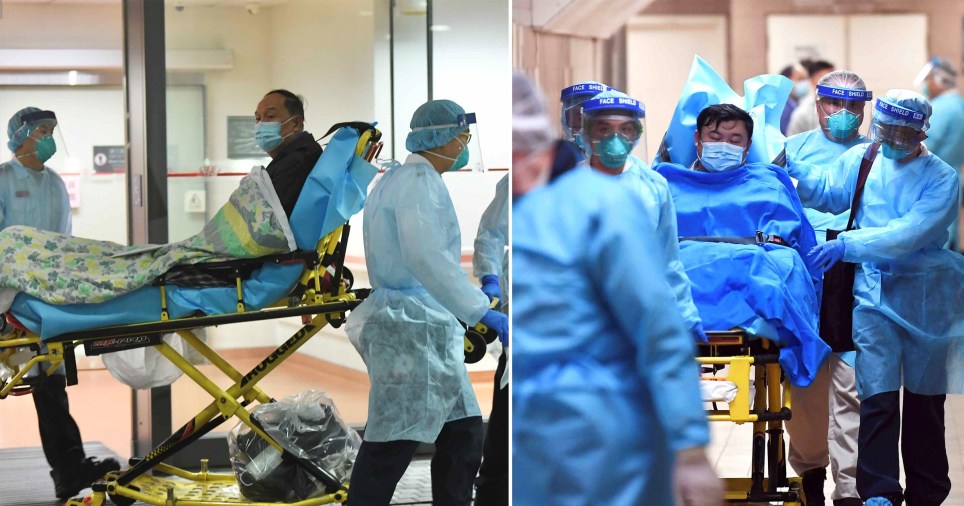The 2019 novel coronavirus continues to spread throughout the world. Since it first emerged in December, 2019-nCoV has infected more than 31,400 people, and at least 630 people have died from the illness, according to the most recent numbers from CNN. While the majority of those affected remain in mainland China, coronavirus has spread to over 25 countries and territories, infecting more than 320 people in those regions—the US itself currently has 12 confirmed cases of coronavirus.

As the outbreak heads towards possible pandemic status, scientists worldwide are on the hunt to formulate a coronavirus vaccine, with labs set up everywhere from the Philadelphia suburbs to the UK—but just how close are we to an effective vaccine becoming a reality?
Who’s currently working on a coronavirus vaccine?
Various biotech firms and scientists are currently formulating coronavirus vaccines: According to Reuters, leading British scientist Robin Shattock, head of mucosal infection and immunity at Imperial College London, will enter into the animal testing stage of one vaccine. And if proper funding is secured, he hopes to begin human studies over the summer—much faster than the average vaccine process.
“Conventional approaches usually take at least two to three years before you even get to the clinic,” he told Sky News, as reported by Reuters. “And we’ve gone from that sequence to generating a candidate in the laboratory in 14 days.”
Another vaccine, this one being formulated by Inovio Pharmaceuticals, a Philadelphia-based biotech lab, is also in the works, according to Philadephia magazine. The lab is reportedly using a $9 million grant to test a unique immunotherapy approach, also on an accelerated development schedule, and will have one “hopefully faster than we have with outbreaks in the past,”
Maryland-based biotech firm Novavax, who reportedly developed an Ebola vaccine in just 30 days, is also in the race. Gregory Glenn, Novavax’s president of research and development, explained to Washington, DC radio station WTOP that the company has the coronavirus gene, which is the “blueprint” for their vaccine. “We’re on the way,” he revealed. “I would just say 90 days from the sequence being identified to starting the clinic—that’s the speed of light for vaccines. We’re hoping to meet something close to that or exceed it if possible.”
Of course, those are just a few options. slate also recently referenced another team, from the National Institutes of Health and Moderna drug company, that’s currently working on a vaccine formulation; and STAT NEWS reported on the Coalition for Epidemic Preparedness Innovations (CEPI), which is funding four separate efforts to create a vaccine for the virus.
How close are we to an effective coronavirus vaccine—and will it be ready to combat this specific outbreak?
In short: probably not. While many of these companies claim to be close to formulating a vaccine, even if it is developed within the next few months, it won’t be soon enough to make a difference with the current oubreak, Jeremy Brown, MD, director of the Office of Emergency Care Research at the National Institutes of Health and author of Influenza: The Hundred-Year Hunt to Cure the Deadliest Disease in History, tells Health.
“There are many labs across the world with the ability to do the basic research that goes into the early development of a vaccine. However, the most challenging part is testing the vaccine on humans,” he says. “That generally takes a much longer time and costs a great deal more money. Testing in people is also the part that has higher stakes. Although we can learn a great deal about vaccines in the lab, it is only when they are tested on people that we can learn whether they are effective and, just as importantly, whether they are safe.”
And even when a vaccine is ready to be tested on people, that phase of development can also be limited by unpredictable factors, like a natural decline of the disease: “Much depends on the background amount of disease at the time the vaccine is tested,” says Dr. Brown. “If there is a lot of disease around and the vaccine is very effective, then we are likely to quickly see a difference between the amount of disease in those who received the vaccine and those who did not.” But, if the disease begins declining independent of the vaccine, it would be more difficult to detect the possible benefits.
That’s what happened when a new Ebola virus vaccine was tested in 2016, says Dr. Brown. “Thanks to a tremendous public health campaign the number of cases of Ebola rapidly declined and it was no longer possible to test the vaccine.”
It’s also important to note that vaccines vary in degree of effectiveness. “For example, the smallpox vaccine worked so well that we completely eradicated the disease from the planet,” says Dr. Brown. “But our yearly influenza vaccines are only about 50-60% effective at best. They don’t work against all the influenza out there, and they need to be given every year.” And at this point, there’s no way to tell which category a possible coronavirus vaccine would fall under.
While none of this is necessarily good news for the current coronavirus outbreak, the research sparked by 2019-nCoV may be extremely helpful for future similar outbreaks. But, at this moment, Dr. Brown says we can all do our part in ending the current coronavirus outbreak. “[It] will be controlled by public health measures, and by each of us covering our noses when we sneeze, washing our hands, and staying away from others when we feel sick,” he says. “This is good advice for the flu, and it is good advice for coronavirus.”

